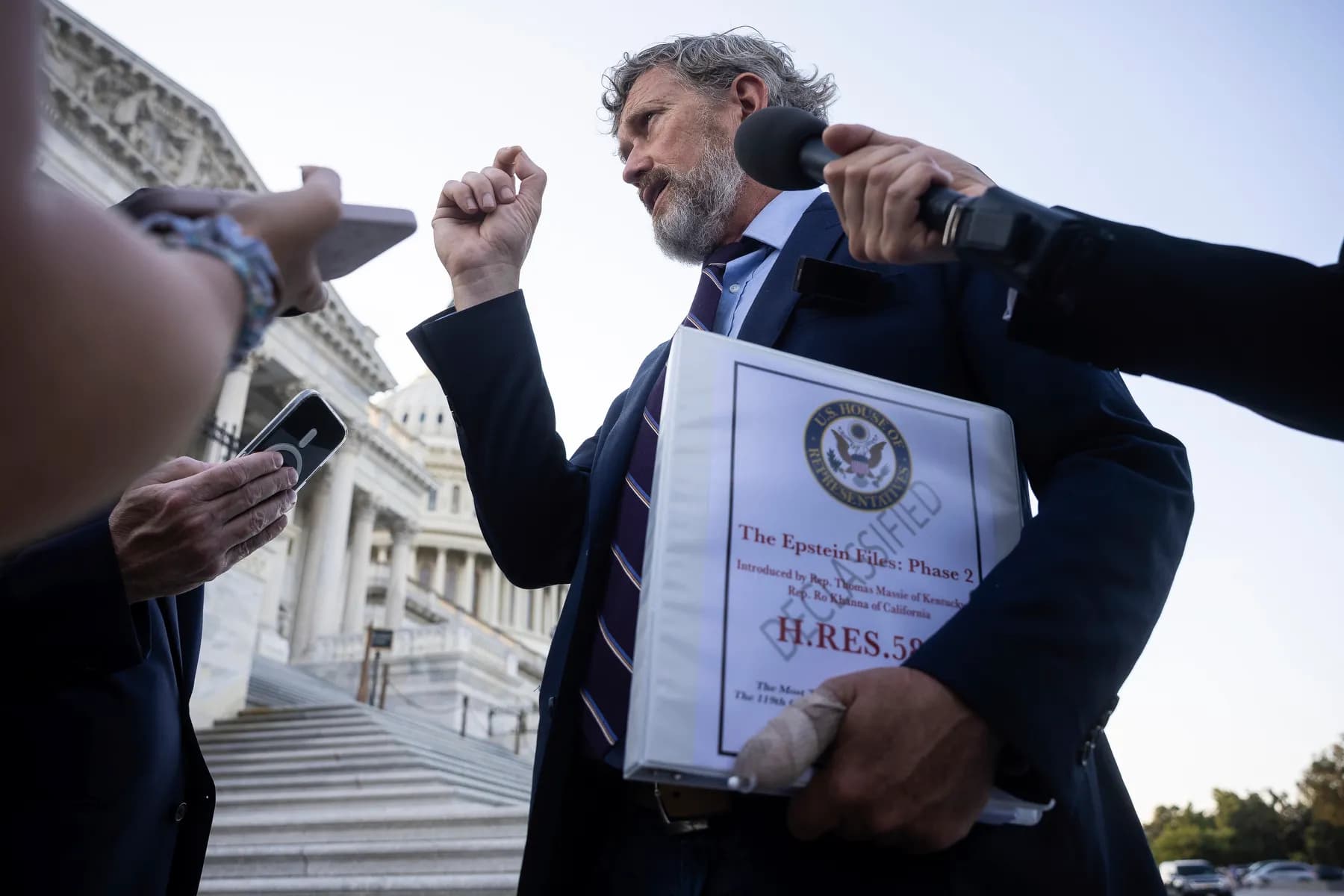We're loading the full news article for you. This includes the article content, images, author information, and related articles.
The vote, expected Tuesday, could compel the US Justice Department to release all unclassified files on the late sex offender, a move with global transparency implications following President Trump''s sudden change of stance.

The United States House of Representatives is scheduled to vote on Tuesday, November 18, 2025, on the Epstein Files Transparency Act. If passed, the legislation would require the US Department of Justice (DOJ) to publicly release all its unclassified files concerning the late financier and convicted sex offender Jeffrey Epstein within 30 days. The vote is widely expected to pass with significant bipartisan support, a development solidified after former President Donald Trump abruptly dropped his long-standing opposition to the files'' release over the preceding weekend.
President Trump''s reversal, announced via his Truth Social platform on Sunday, November 16, 2025, marked a significant political shift. Having previously labeled the controversy a "Democrat hoax," Trump urged House Republicans to support the release, stating, "we have nothing to hide." This change in position came as it became clear that a bipartisan majority in the House, including several Republicans, was prepared to force a vote on the matter, circumventing the leadership of House Speaker Mike Johnson who had sought to block it. Critics and some Republican lawmakers, such as Representative Thomas Massie, have suggested Trump''s new support and a recently ordered DOJ probe into Epstein''s Democratic connections might be a "smokescreen" to legally obstruct the full release by claiming parts of it are under active investigation.
Jeffrey Epstein was a wealthy financier with a network of powerful associates in politics, business, and academia across the globe. He was arrested in July 2019 on federal sex trafficking charges involving minors. Epstein died by suicide in a New York jail cell in August 2019 while awaiting trial. His associate, Ghislaine Maxwell, was convicted in December 2021 for her role in recruiting and abusing young girls and is serving a 20-year prison sentence. The files in question are believed to contain investigative materials, flight logs, and communications that could shed more light on the extent of Epstein''s criminal network. While a July 2025 DOJ memo stated a review found no incriminating "client list" or evidence of blackmail, public and political pressure for full transparency has persisted.
While no direct, confirmed links between Jeffrey Epstein''s sex trafficking network and Kenyan individuals or entities have been established in the publicly available information, the case holds significant indirect relevance for the region. The scandal underscores the global nature of elite networks and the mechanisms through which wealth and power can be used to conceal criminal activity, a theme that resonates with ongoing anti-corruption and accountability efforts in Kenya and East Africa. Reports have indicated that Epstein and his associates, including former US President Bill Clinton, took trips to several African nations, including a visit to Kenya in 2002. Furthermore, unconfirmed online discussions have pointed to Malindi, a coastal town in Kenya known to be a hotspot for sex tourism and child exploitation, as a location with ties to three of Epstein''s contacts, though these claims require further investigation. Ghislaine Maxwell also alleged that Epstein worked with "African warlords" in his business of recovering stolen money, though specific individuals or countries were not named. The international fight for transparency in the Epstein case serves as a powerful parallel to the struggles against impunity for powerful figures within the East African context. The outcome of the US vote will be watched globally as an indicator of the American justice system''s ability to hold the powerful to account, a principle of significant international importance.
Keep the conversation in one place—threads here stay linked to the story and in the forums.
Sign in to start a discussion
Start a conversation about this story and keep it linked here.
Other hot threads
E-sports and Gaming Community in Kenya
Active 9 months ago
The Role of Technology in Modern Agriculture (AgriTech)
Active 9 months ago
Popular Recreational Activities Across Counties
Active 9 months ago
Investing in Youth Sports Development Programs
Active 9 months ago